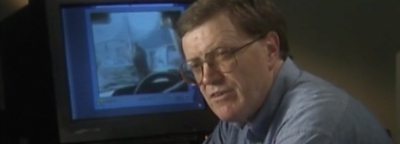A Panorama team making a programme in the Republic of Ireland followed their instincts - but not Βι¶ΉΤΌΕΔ rules - when they were tipped off about IRA activity in a border village. They went to Carrickmore and filmed hooded gunmen holding up traffic in a protest against increased activity by British security forces in the border area.
None of the footage was shown, and there were never any plans to show it, but it could not have happened at a more sensitive time. The Thatcher Government had declared war on terrorism and on media exposure of such activity - the "oxygen of publicity", as the Prime Minister called it.
News that the footage existed spread slowly. It was several days later that the head of the Βι¶ΉΤΌΕΔ in Northern Ireland heard about it by chance at a dinner party, and some time later the Irish newspaper Hibernia referred to it. Now the British press picked up on the story, accusing the Βι¶ΉΤΌΕΔ of colluding with the IRA, and thus the episode came to the attention of Mrs Thatcher.
She went "scatty" at a Cabinet meeting, according to one newspaper, and Βι¶ΉΤΌΕΔ Secretary William Whitelaw advised Sir Michael Swann that the Βι¶ΉΤΌΕΔ would have to demonstrate that it was taking the breach seriously.
An internal inquiry ruled that the Panorama team should have been alert to the dangers, and that they should have informed the Controller Northern Ireland before they responded to the tip-off. The editor of Panorama was removed from the programme and then reinstated after colleagues protested on his behalf - and his boss was reprimanded. Subsequently, new clearance procedures were laid down for any Troubles-related programme activity.
